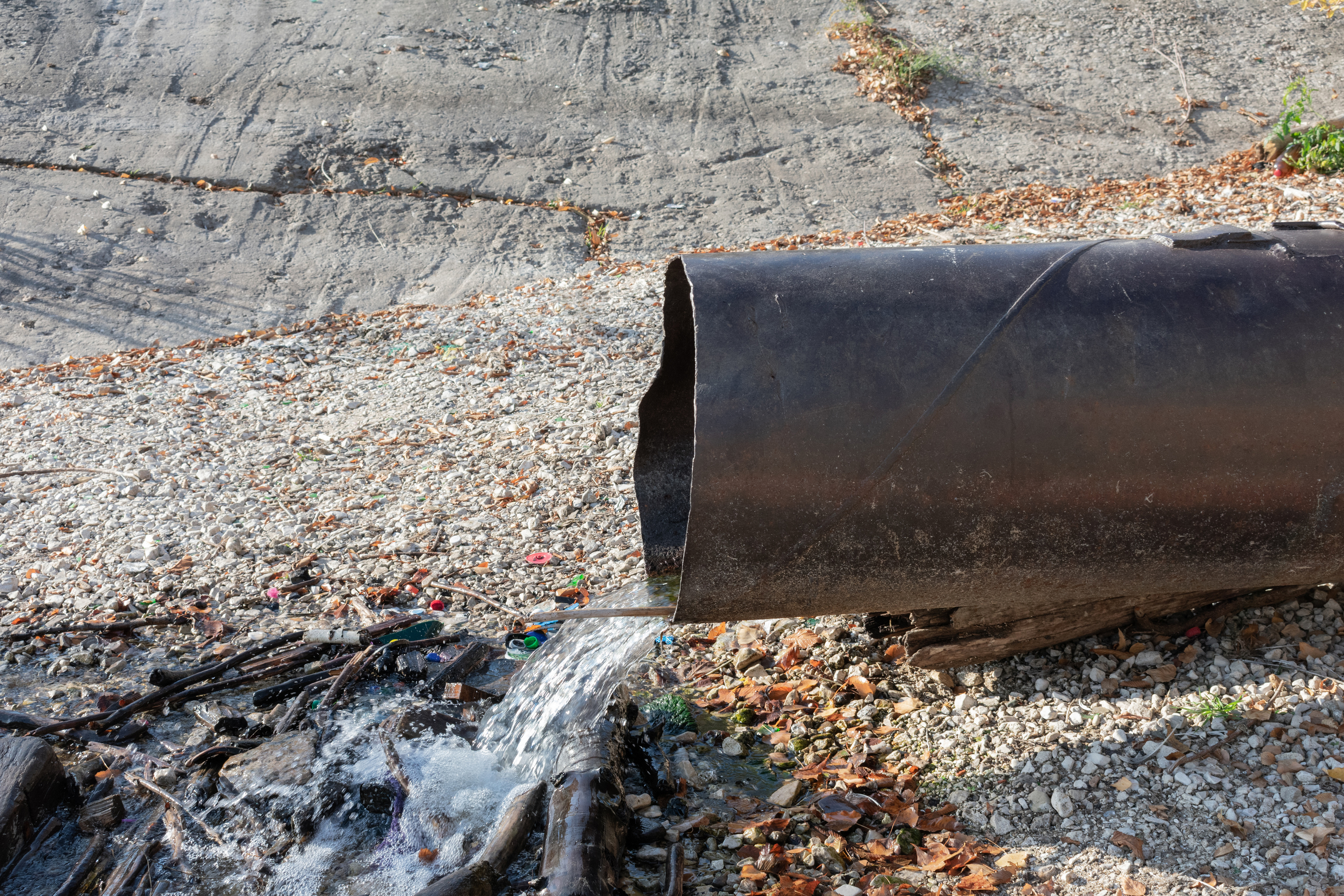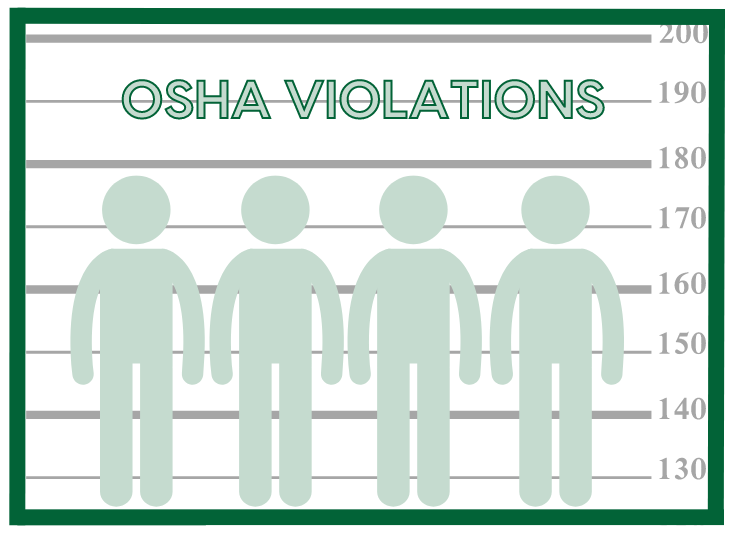California Stormwater Permitting Compliance - 6 Questions
As an industrial operations or environmental, health, and safety (EHS) professional, are you covered under the California Statewide General Permit for Stormwater Discharges?
If so, did you know that July 15 was the deadline for filing your first annual report under the Industrial General Permit (IGP)? Affected personnel must submit the IGP documentation in the California Stormwater Multiple Application and Report Tracking System (SMARTS).
Perhaps you are an industrial manager or other similar professional and know your company lacks IGP coverage. Or maybe you aren’t sure if this covers your activities, or what your obligations are. While it would have been best to know the requirements before the deadline, the next best time is now.
In this blog, we’ll cover the details of stormwater requirements and offer guidance to help your facility, if needed, become compliant. Below are six essential questions to ask to qualify your status—and start your journey to IGP compliance.
One: Does My Business Type Need a Permit?
Most California-based industrial companies and facilities need coverage under this permit, including:
- Factories
- Landfills
- Electricity generators/handlers
- Mining sites
- Vehicle maintenance/fleet operators
Even if you don’t clearly fall into one of these categories, it’s a good best practice to consult the complete list of applicable business types. If you even so much as suspect your company is affected, don’t risk noncompliance—ask a stormwater professional!
Two: Can I Operate Without a Permit?
No. If you are a qualifying business, you must file your permit request, with accompanying documentation, no later than seven days before industrial operations start. Remember: Permit filing is often complicated, as we’ll discuss below.
When conducting the permit submission, time is of the essence! It’s always best to get approval as quickly as possible. This way you avoid the operational disruptions and costly holdups caused by a lack of proper permits.
Three: Do I Qualify for a Permit Exemption?
When preparing the request and documentation, perform an audit to determine if your site is exposed to stormwater runoff. You may be exempt from the IGP if:
- All organizational industrial operations are indoors
- There are no exposed storage or material handling activities that may result in stormwater runoff
When these conditions apply, you can apply for a No Exposure Certification (NEC). If granted, the NEC exempts facilities from most IGP requirements. The work’s not fully over, though—you must renew the NEC annually.
Four: What Are the IGP Anti-Pollution Requirements?
If you don’t qualify for a NEC, then you must ensure your operations are IGP compliant. There are three IGP requirements—all imposed to prevent your business from releasing pollutants into stormwater runoff. You must prepare or implement the following:
1. Stormwater Pollution Prevention Plan (SWPPP)
Every affected company must have a SWPPP for each covered facility. A fully action-oriented plan must be on file at the facility it supports, and requires:
- A diagram of site layout and runoff
- Implementation of best practices for ensuring clean stormwater runoff
- Training in pollution runoff prevention
- A runoff monitoring system
- Where applicable, a document listing that the aforementioned conditions were met
2. Visual Monitoring System
At least once monthly, and never during a storm, companies must visually check all stormwater exits. Having a visual observation plan and following through on such a plan will allow:
- Verification of best practices' efficacy
- Discovery of any non-stormwater runoff
- Location of any heretofore-unnoticed industrial pollution
3. Qualifying Storm Event (QSE) Sampling System
Every organization must collect and analyze stormwater samples four times annually—twice in the year’s first half and twice in the second. These sample reviews must occur during a QSE. The type of water body your runoff feeds will dictate the specific requisite performance tests.
The samplings will enable organizations to do such things as confirm pH levels, as well as to detect the presence of oil, grease, and certain minerals. Not all businesses need to test for every pollutant. If you aren’t sure what makes a storm a QSE, or what to sample for, be sure to ask a professional.
Five: Can I File for the Permits Solo?
Usually yes, but this depends on the business and location.
As a responsible party for your business, you can file NECs on your own. That said, it can be more efficient to have a professional site assessment to be completely sure you meet the requirements. Otherwise, the local water board may find flaws in your application and determine that you still risk exposure. This means application resubmission and elongates the permitting process.
Likewise, any responsible party can apply for IGP permit coverage. There is a proviso, though: The site must not discharge stormwater into a body of water that has a listed impairment or a restriction on certain pollutants. This will depend on a body of water’s pollution status. If a facility violates impairment restrictions, it can mean costly fines. Once again, if you’re unsure about this, talk to a stormwater professional.
Six: Do I Need a Qualified Industrial Stormwater Professional (QISP)?
Sometimes. Companies must retain a QISP when they:
- Exceed stormwater runoff limitations and are on an elevated (Level 1 or 2) status for pollution prevention.
- Discharge into an impaired water body, which is a no-no regardless of pollution status. In this situation, dischargers need the QISP to prepare their SWPPP and train a prevention team to avoid repeating this mistake.
When it comes to stormwater compliance, it always pays to get expert support. The QISPs, who are certified and well-trained professionals, can:
- Develop your SWPPP
- Evaluate your site
- Train your staff for IGP compliance
Even if you believe your business is NEC-qualified, a professional evaluation can detect otherwise unnoticed risks. This enables you to address them without losing time or effort.
Partnering for IGP Compliance
Stormwater permitting can be an incredibly complex and difficult project to tackle, and much of the information regarding pollution limitations and requirements of individual water bodies is difficult to find. Fortunately, there are outstanding California-based partners available to help you, like Triumvirate Environmental.
Talk to us today—we can provide a stormwater review or consultation on best management practices. We can save you time, money, and effort in your mission to remain compliant with these crucial stormwater protection regulations.





.png)
